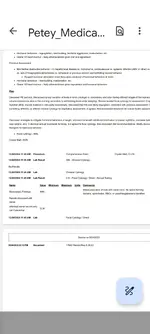FiFee Fiona
Active member
- Feb 19, 2022
- 64
- 131
- Parrots
- Green cheek Conure
We just had a vet visit.
I thought best to check on him over preening.
I'm in Australia so the meds maybe have different names..?
So he's moulting. It's cold here and he's dropping feathers
They did a crop and faecal wash.
Found bacterial infection in crop and yeast in his poop.
Have meds to give for 10 days.
Enrotril oral and Fungilin drops.
What I'm wondering is how long could he have had this. And if it's something I've done.
Fed him something he shouldn't... ?
I should have asked but I had so many questions and forgot.
I am very careful what he eats and what he chews.
I've had him 6 months.
Could he have had these before he came to me?
Not sure if any of you had this experience and might share some insight please ..
At least it gives me an idea of why he's unhappy ...
Thanks
I thought best to check on him over preening.
I'm in Australia so the meds maybe have different names..?
So he's moulting. It's cold here and he's dropping feathers
They did a crop and faecal wash.
Found bacterial infection in crop and yeast in his poop.
Have meds to give for 10 days.
Enrotril oral and Fungilin drops.
What I'm wondering is how long could he have had this. And if it's something I've done.
Fed him something he shouldn't... ?
I should have asked but I had so many questions and forgot.
I am very careful what he eats and what he chews.
I've had him 6 months.
Could he have had these before he came to me?
Not sure if any of you had this experience and might share some insight please ..
At least it gives me an idea of why he's unhappy ...
Thanks

